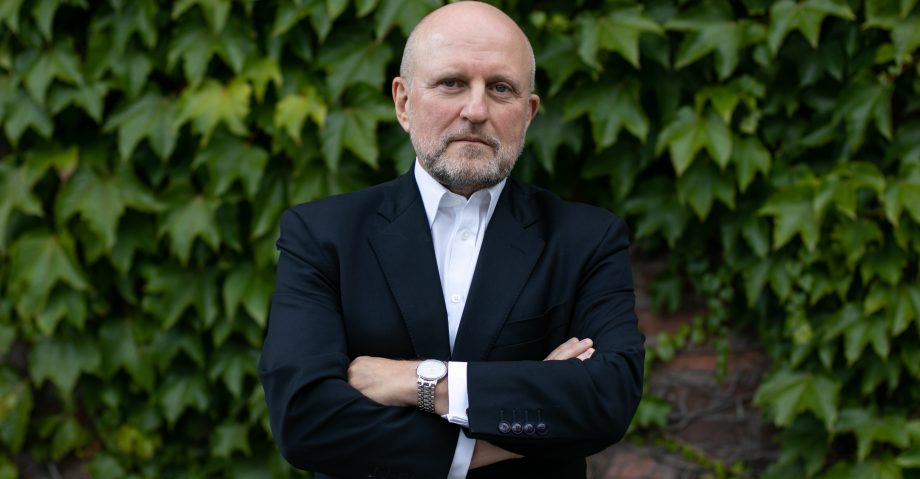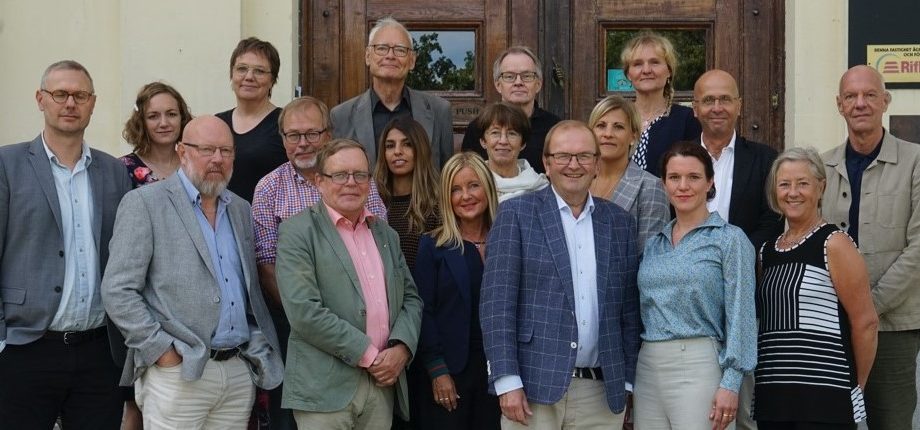SMER calls for an updated regulation on embryo research
Recent developments in embryo and stem cell research has created the need for a revision of the current regulation for research on early human development, according to SMER.
European Group on Ethics (EGE) and Smer adopts a joint statement
After meeting i Stockholm on 24 may, the European Group on Ethics (EGE) and Smer has adopted a joint statement concerning democracy and digitalisation.
New publication: In brief – Embryo models
Stem cell-based models of human embryos can help understand early development and
contribute to the development of new treatments for infertility and foetal damage. At the same time, embryo models spark boundary issues and challenge current
regulations.
Video available from the ethics day seminar
A video is now available from the Councils' seminar on ethics, knowledge and decision-making during the pandemic.
New publication: In brief – Heath Data
Digital development has resulted in new opportunities for the collection, sharing and processing of health data. The potential benefits are huge, but the development also demands weighing up the ethical
issues involved.
New comment on opportunistic genomic screening
In a new publication the Swedish National Council on Medical Ethics discusses ethical aspects on opportunistic genomic screening.
The Ethics Day 2022 – The Ethics of a Pandemic – Hindsight and Foresight
Implementing ethical analysis and frameworks for decision making during a crisis – why and how?
Video available from ethics symposium on synthetic embryology
The recordings are now available from KI's ethics symposium regarding synthetic embryology held in March 2022.
Trilateral Meeting of National Ethics Committees in Stockholm
The Swedish National Council on Medical Ethics has invited the ethics councils of Norway (Bioteknologirådet) and Denmark (Det etiske råd) to a trilateral meeting in Stockholm.
Symposium on human genome editing
A symposium on editing of the human genome filmed at the release of Smer's report on the topic.
Summary in English of the report Editing of the Human Genome
A report summary in English is now available.
Webbinar: A conversation concerning somatic and heritable gene editing – ethical aspects and future regulation
The Swedish National Council on Medical Ethics is hosting a webinar on etical and legal aspects of somatic and heritable gene editing on humans In connection with the release of a new report on human gene editing.
Sven-Eric Söder has been appointed as new chairman for The Swedish National Council on Medical Ethics.
Seminar: Priority settings in healthcare in pandemics and other situations of mass casualties
The theme for the Swedish National Council on Medical Ethics’ Award Winner Seminar 2021 is priority settings in healthcare in pandemics and other situations of mass casualties. The issue will be discussed from both a theoretical and a policy perspective.
Current topics
At present we work on a report on somatic and heritable genediting. This year we have focus on several topics under the umbrella "Genetic integrity 2.0" and the council follow up ethical questions raised by the ungoing pandemic.
New report: Health care of persons without permanent residence permits
According to the Swedish National Council on Medical Ethics, persons without permanent residence permits should not be refused health care due to uncertainty concerning their access to aftercare.
Smer signed the WHO Declaration for Vaccine Equity
The Swedish Council on Medical Ethics, Smer, has signed The WHO Declaration for Vaccine Equity on February 23.
Webinar: Ethical choices in a pandemic – a Swedish perspective
Webinar on Ethical choices in a pandemic – a Swedish perspective on Tuesday, November 24, 2020 at 1:00 PM – 2:00 PM (CET) arranged by the Nordic Committee on Bioethics ( NCBio) in cooperation with the Swedish National Council on Medical Ethics (Smer)
Webinar on global ethics in a time of pandemic
The Swedish National Council on Medical Ethics and the Center for Applied Ethics, Linköping University, are hosting a webbinar on global ethics and justice in a pandemic.
Ethical challenges associated with AI must be dealt with
The ethical challenges associated with AI in healthcare must be taken seriously, if we are to fully exploit the opportunities that the technology opens up. This is a conclusion in a new report from the Swedish National Council on Medical Ethics.
The Swedish National Council on Medical Ethics (Smer) provides an overview of the core ethical values, problems and challenges that are actualised in a pandemic, based on the ongoing COVID-19 pandemic.
Lena Hallengren, Minister for Health and Social Affairs has appointed Kenneth Johansson as new chair for The Swedish National Council on Medical Ethics.
New report: Signs of life after late abortion
In this report the Swedish National Council on Medical Ethics analyses ethical issues in connection with late abortion close to the medical limit for viability.
Smer comments on genetic testing of children
One conclusion is that genetic testing of children should only be carried out within the health care setting.
Smer calls for the Government to review gender dysforia in childhood and adolescence
According to the Swedish National Council on Medical Ethics, there is an urgent need for more knowledge concerning gender dysforia in childhood and adolescence.
Report: A tool for ethical analysis of health care governance models
The council has published a proposal for a tool for ethical analysis of health care governance models.
The Council’s message to the Government: medical age assessment in the asylum process needs to be objectively examined
The Council has sent a letter to the Department of Justice concerning medical age assessment in the asylum process.
Watch the film from the conference: Artificial intelligence in health care
The aim of the conference was to illuminate how artificial intelligence might change healthcare and what ethical challenges the development brings with it.



